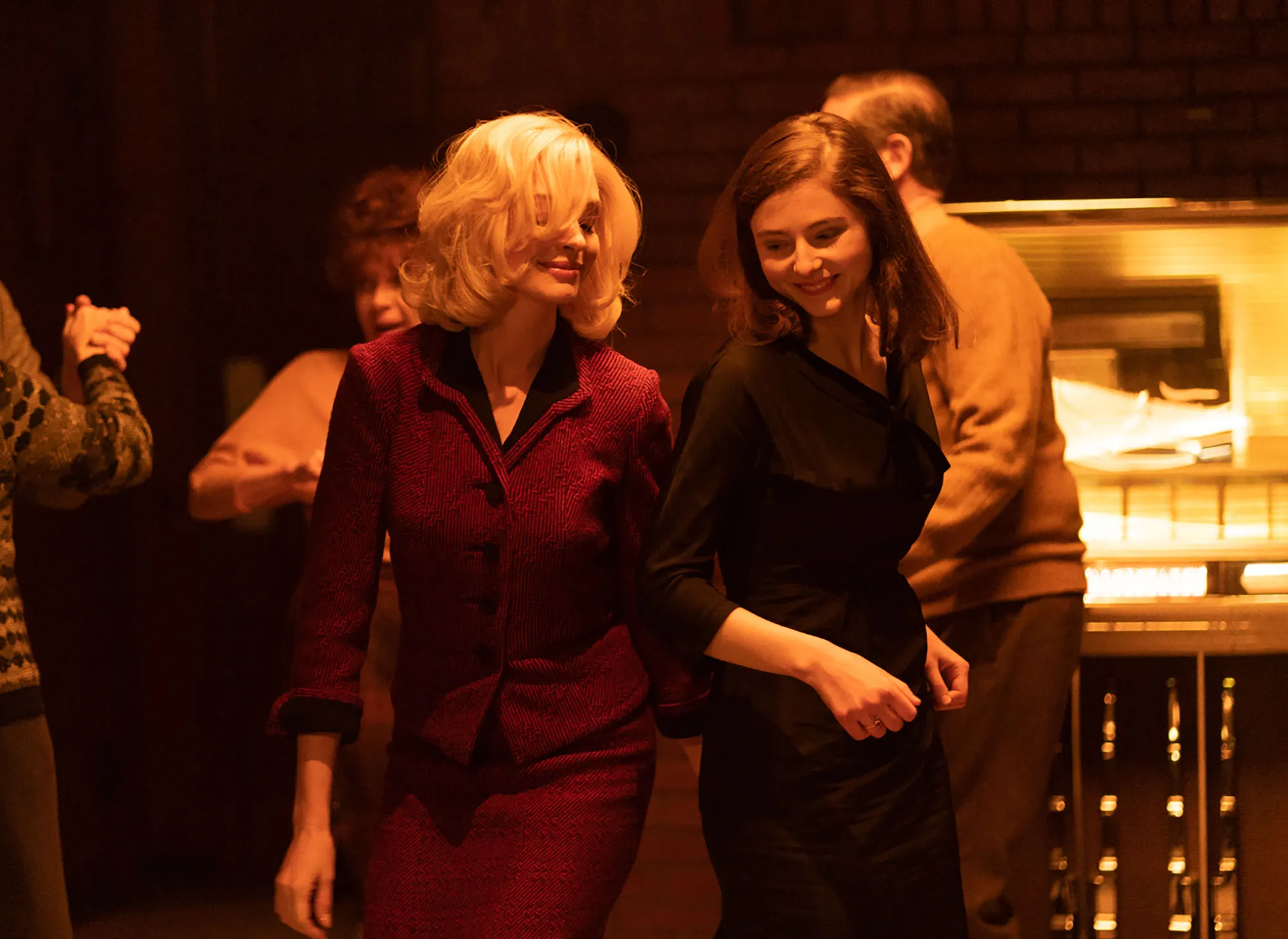
Eileen’s Tragic Regionalism
How a tense New England character study highlights the limits of local color.
When the organizers of Film Fest Knox announced the new event late last year, they added an eligibility requirement that set it apart from the thousands of other festivals across the nation: movies made in New York City or Los Angeles need not apply. While such a rule may seem arbitrary and even exclusionary to those unfamiliar with film festival culture, it directly addressed the long-gestating conflicts between such events and regional filmmaking communities.
Independent film is a stepping stone, a lottery-like competition in which filmmakers from all over the country have a shot at the Hollywood big time. Those who kicked the dust of their crummy small towns off their feet for the big city often exploit their roots to gain traction despite the utter contempt they display for their pasts in every other facet of their lives. Likewise, prominent regional events like the Nashville Film Festival find themselves besieged each year by LA bottomfeeders with big-fish-small pond syndrome as they post their Broadway selfies and murmur that there’s actually more to do in cities like ours than they thought.
The result is that place in American movies outside the country’s urban centers has become exoticized, the fertile ground of poverty porn awards bait sensations like Winter’s Bone and Selma–movies that demonstrate little respect for their setting beyond its ability to earn accolades. However, the less obvious result is that such dichotomies often obscure that the fissures in American culture result not from a conflict between Blue State cosmopolitanism and Red State deplorables, but an intraregional urban-rural divide in which the less-desirable areas of New England, Illinois, and Eastern California exist in perpetual limbo.
American film seems wildly disinterested in such regional depictions, which makes British filmmaker William Oldroyd’s Eileen seem even more peculiar than its already odd premise. Based on much-lauded author Ottessa Moshfegh’s 2015 debut novel, the film stars Thomasin McKenzie (JoJo Rabbit, Last Night in Soho) as a loner prison secretary in early 1960s small-town Massachusetts whose life offers little in the way of promise or escape.
Caring for her deteriorating alcoholic and abusive ex-cop father (Shea Whigam), Eileen spends her days watching couples at the local makeout spot and fantasizing about killing herself and her dad with his old service weapon. But when Harvard-trained femme fatale Rebecca (Anne Hathaway) moves to town to take on the role of prison psychologist, Eileen’s desire to flee the mundanity of her daily grind unleashes a surprise wave of violence and obsession.
When it debuted at Sundance last January, critics brandished the film as the latest front in the battle for representation. Into proclaimed, “Anne Hathaway’s Eileen is Sexy and Gay, But It Could Be Gayer” while Out magazine broke news of the film with the headline, “Anne Hathaway & Thomasin McKenzie Are Problematic Lesbians.” Such reception indicates the abysmal state of criticism in which all aspects of a film are reduced to a representation scorecard, a hot-take environment in which DEI impulses are never pure enough because the goal must always remain out of reach.
Much to the chagrin of such critics, Eileen is not a movie about sexuality. It’s a treatise on a multitude of thwarted desires among people on the outside looking in. Oldroyd makes clear that Eileen is pathological, the type of person who would lock herself in a bathroom at a dinner party and gaze at a hairy bar of shower soap to cope with her longing and lack of intimacy with others.
Yet, Eileen is also not a self-made victim; she’s a damaged relic of postwar America left behind by a burgeoning elite too occupied to provide an etiquette book for those beneath them. Unlike the throngs of G.I.’s entering lecture halls after their service, Eileen has no outlet for mobility. She’s stuck even though she’s dedicated to her domestic and professional duties. After all, someone has to take care of the human refuse pushed out of Boston’s metro center.
With her Ivy League degree and urbane manners, Rebecca embodies all that Eileen lacks. She knows that the discarded townie worships her, which makes it all the easier to take advantage of the young woman’s goodwill. For Rebecca, her stint in Anytown, MA, is the ideal territory to try out her neo-Freudian theories, and her budding protege is the perfect catalyst. Eileen’s isolation may make her a tad self-absorbed, but she still shows empathy toward other castoffs like Lee Polk (Sam Nivola), a twentysomething inmate with a life sentence for patricide, the long-repressed desire at the center of Eileen’s inability to conform to social norms.
Rebecca is lonely, too. Her refined girlpower aesthetic has made her an outcast in a man’s world, a slight she screams about from the rooftops in her refined New England accent. She wants to do good. But she’s just slumming it here. She’s clawed her way into the rarefied atmosphere and learned to flaunt her relativism. This makes her a conflicted predator, but Eileen is, nevertheless, her prey. And, as the movie proves, it often takes an overseas interloper like Oldroyd to expose the neglected corners of our nation and the hallmarks of the upper crust who hold dominion over us whether we like it or not.
Eileen opens today at AMC Thoroughbred 20, Regal Green Hills 16, and Regal Opry Mills 20.
